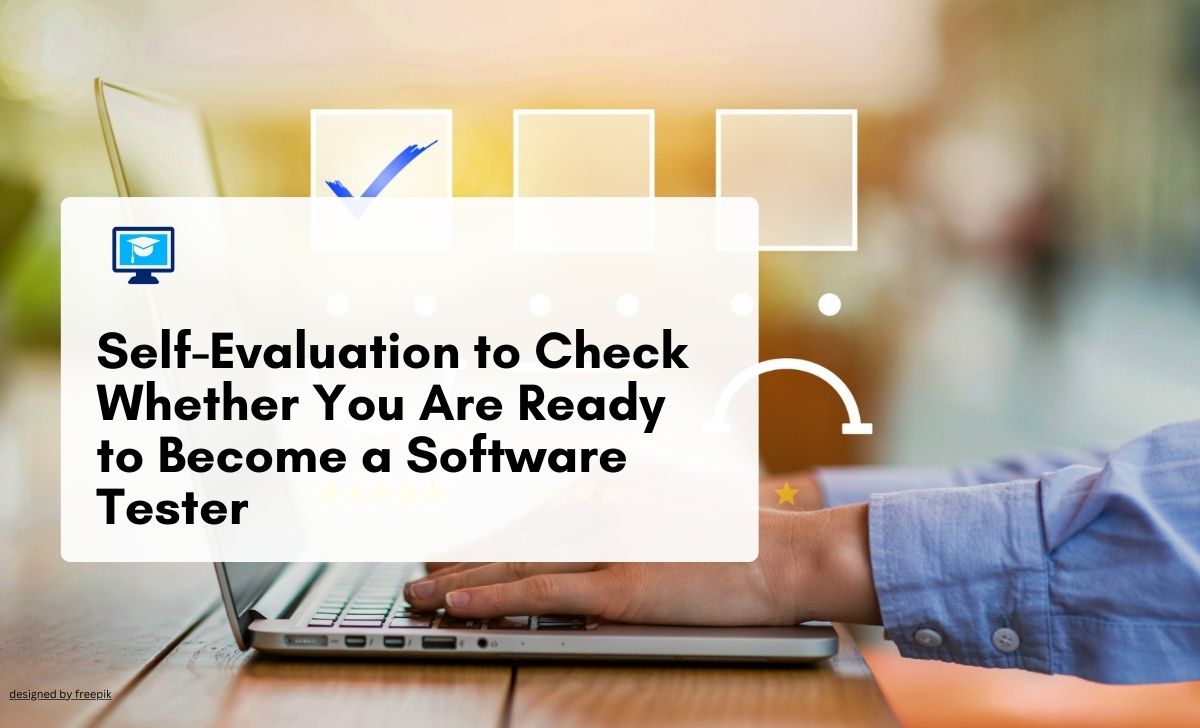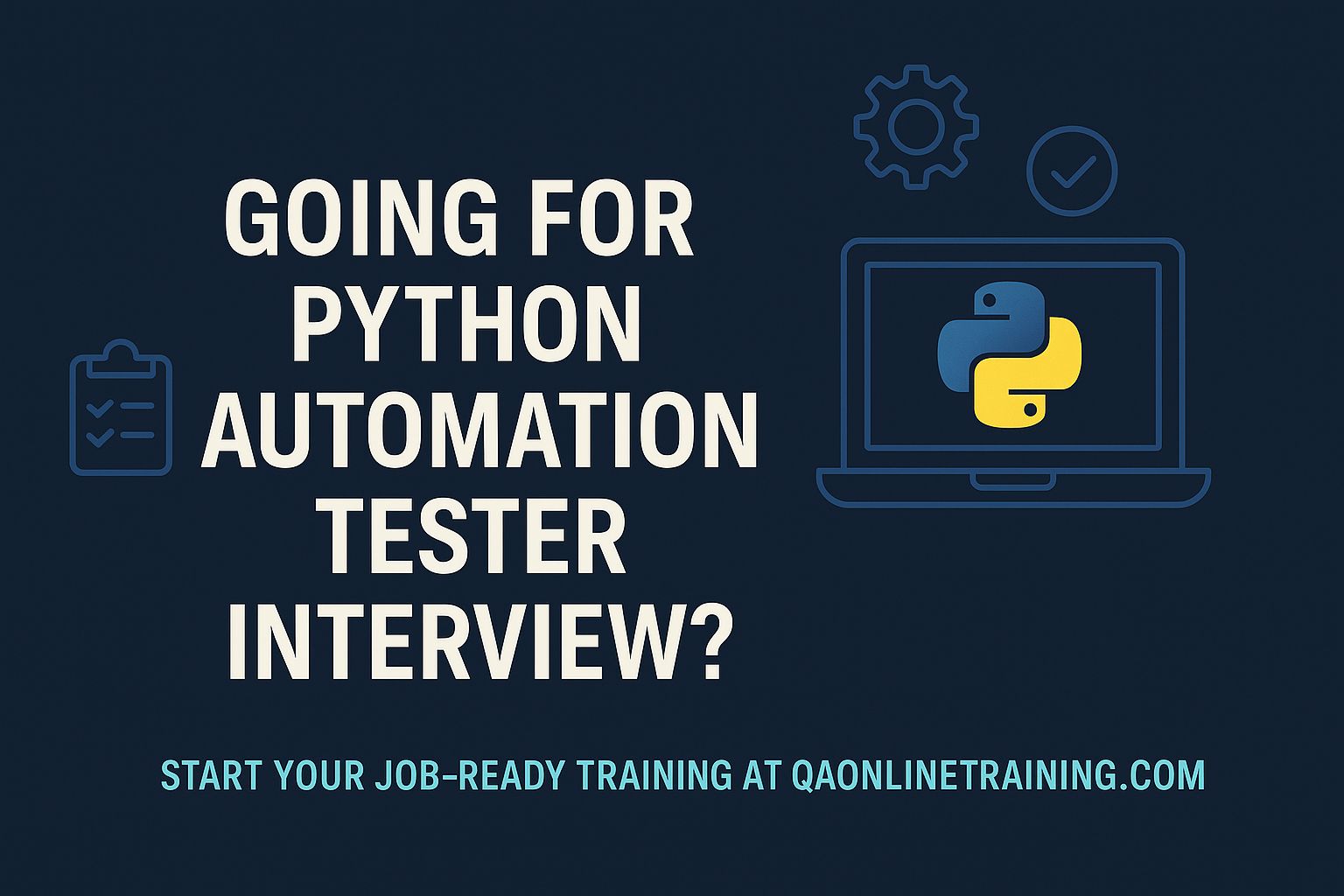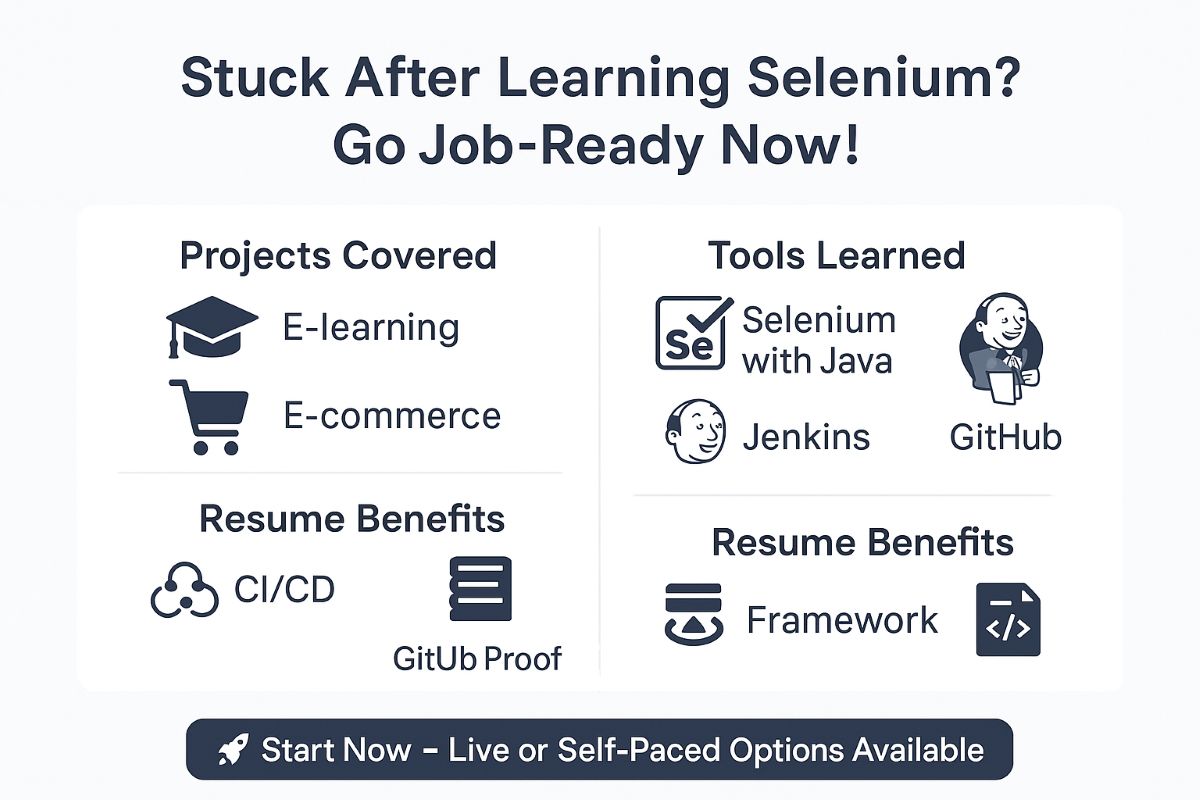A career in software testing can be a rewarding career path that combines technical skills, analytical thinking, and a keen eye for detail. But how can you tell if you’re up for the challenge? A self-evaluation is a good way to see how prepared you are, find areas for improvement, and build confidence. In this guide, we will walk you through a detailed checklist that will help you assess your readiness to become a software tester.
1. Understanding Software Testing Fundamentals
Start with the basics. A solid foundation is essential for achieving success in this field.
- Do you understand the software development lifecycle (SDLC)?
Testing is deeply integrated into the SDLC. It is essential to know its phases and processes. - Can you differentiate between verification and validation?
Verification makes sure the product is made correctly, and validation makes sure it meets what users want. - Are you familiar with the different types of testing?
Examples include functional, non-functional, regression, and exploratory testing.
Action Item: If you are unfamiliar with these concepts, you might want to consider studying resources like the ISTQB Foundation Level materials or beginner-friendly testing courses.
2. Manual Testing Skills
Manual testing forms the foundation for all testing careers.
- Can you write clear and detailed test cases?
Writing test cases requires understanding user requirements and translating them into actionable steps. Understanding user requirements is important when writing test cases. - Do you know how to track and report defects?
It is essential to have a thorough understanding of the defect life cycle, including creating, reproducing, and closing defects. - Have you practiced boundary value analysis or equivalence partitioning techniques?
These are essential for identifying test scenarios.
Action Item: Practice creating test cases for simple applications like login systems or shopping carts.
3. Familiarity with Testing Tools
Modern testers require knowledge of tools to be successful.
- Are you familiar with bug-tracking tools like JIRA or Bugzilla?
These tools help manage defects and collaborate with teams. - Do you know how to use test management tools like TestRail or Zephyr?
Such tools streamline test planning and reporting.
Action Item: Experiment with free trials or open-source tools to gain practical experience.
4. Understanding of Automation Testing Basics
Automation testing is a highly valued skill in the industry.
- Do you understand what test automation is and when to use it?
Automation is best for repetitive and regression testing tasks. - Have you used any automation tools like Selenium or Appium?
Experience with tools is crucial for transitioning into automation roles. - Do you know a programming language like Python, Java, or JavaScript?
Scripting skills are essential for creating automated test cases.
Action Item: Learn basic automation scripting and try tools like Selenium WebDriver.
5. Problem-Solving and Analytical Skills
A good tester needs to think critically and anticipate edge cases.
- Can you identify possible user scenarios and test accordingly?
Edge cases often uncover the most critical defects. - Are you able to isolate and reproduce bugs effectively?
Reproducing bugs is vital for debugging and resolution.
Action Item: Sharpen your analytical thinking by working on real-world test scenarios.
6. Domain Knowledge
Understanding the domain of the application being tested adds significant value to understanding it.
- Do you have basic knowledge of the domain you’re testing?
For example, banking, healthcare, or e-commerce have unique requirements. - Are you aware of industry standards and compliance requirements?
Examples include HIPAA for healthcare and PCI-DSS for finance.
Action Item: Research the domain you’re interested in and study its specific requirements.
7. Communication and Collaboration Skills
Software testing entails collaborating closely with developers, product managers, and stakeholders.
- Can you document test results and defects clearly?
Writing concise, actionable bug reports is a key skill. - Are you comfortable explaining issues to technical and non-technical audiences?
Testers often bridge the gap between technical teams and business stakeholders.
Action Item: Practice documenting scenarios and presenting them to peers.
8. Familiarity with Agile and DevOps Environments
Modern software development heavily relies on the Agile and DevOps methodologies.
- Do you understand Agile methodologies?
Agile emphasizes iterative development, where testers work alongside developers. - Are you familiar with CI/CD pipelines?
Tools like Jenkins integrate testing into the development pipeline.
Action Item: Learn the basics of Agile and watch tutorials on CI/CD tools.
9. Practical Experience
Nothing beats hands-on experience.
- Have you worked on any testing projects?
Projects provide real-world experience and enhance your resume. - Do you have experience simulating real-world testing conditions?
Testing in environments close to production is critical.
Action Item: Participate in open-source projects or work on dummy applications to gain experience.
10. Certification Readiness
Certifications add credibility and demonstrate your commitment to learning.
- Are you ready to take a foundational certification like ISTQB CTFL?
It’s a great starting point for beginners. - Do you know which certifications align with your career goals?
Examples include Selenium for automation testers.
Action Item: Identify certifications that align with your interests and plan your learning path.
How to Score Yourself
- Rate yourself on each category:
- Beginner (1-3): Needs improvement.
- Intermediate (4-6): Decent understanding.
- Proficient (7-10): Job-ready.
- Score Interpretation:
- 70% or more: Ready to apply for testing roles.
- 50%-69%: Focus on building hands-on experience.
- Below 50%: Strengthen foundational knowledge before applying.
Conclusion
A comprehensive self-evaluation facilitates the identification of one’s strengths and potential areas for enhancement. Use this checklist to figure out if you’re ready to become a good software tester. Remember, the journey involves continuous learning and practice.
Call to Action: Ready to take the first step? Start with ITlearn360 beginner-friendly training programs to build a strong foundation in software testing.









